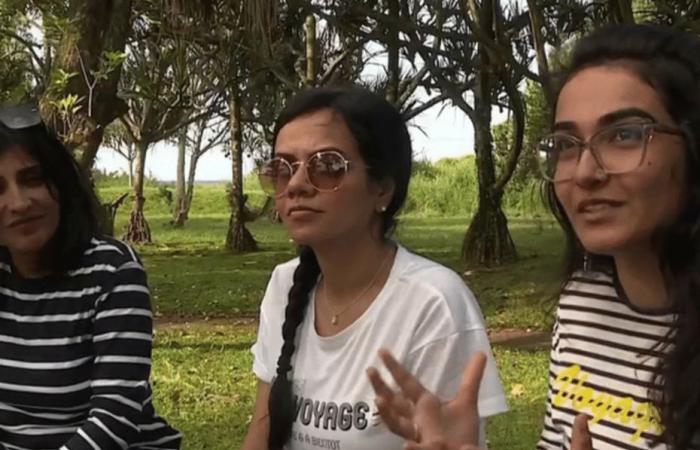How do Reunion Islanders approach death according to their faith? On this All Saints' Day, meeting with a family from the Muslim community who is going through the ordeal of mourning.
Published on November 1, 2024 at 9:43 a.m.
Each community has its own way of honoring the dead and maintaining a form of connection with a loved one who has passed away. Struck by the recent death of their father Azim Valdjee, 65, a well-known trader from Saint-Benoît, his daughters, Nadia, Naîla and Shaznane tell how they got through this ordeal, accompanied by their faith in Islam.
“We have already achieved this. Now, we are recovering from this stage, very slowly” notes Nadia, the eldest. “To see all these positive things that we say about him, it helps, it feels good, and at the same time it reminds us of the loss of this being that we love very much,” adds his youngest daughter, Shaznane.
Watch the report from Réunion La 1ere:
Large format: experiencing death in the Muslim tradition
•
©Reunion the 1st
“He is no longer there physically, but his soul is present everywhere”
Naîla Valdjee, about her late father
Present at his side until the end, they must now project themselves without him. “At the end, he offered his smile and his look to us, his three children, and that is what gives us the strength today to overcome this ordeal”Nadia continues.
“We interpret this smile as a liberation, a deliverance. That finally, that's it, he's taking flight. He's ready, we his daughters are ready too, and he's heading towards his new destination peacefully, with serenity. And that we don't have to worry or feel bad, because he's okay now.” describes the big sister.
Azim, who died of cancer in just three months, died on the birthday of his youngest daughter, Naîla. “I interpret that as a blessing. I tell myself that he was waiting for my birthday to leave.”
And to add: “He is no longer here physically, but his soul is still present everywhere. Where I am, he will be there too.”
The three young women think that there is “something” after death: “It gives hope to be able to find your loved ones even once you've left. It's not over, there's still a sequel to come.”
In Muslim tradition, it is customary to bury the dead as soon as possible. Azim's daughters were able to spend two hours at their father's remains. “He left at 1:28 a.m. and then followed the rituals and he was buried at 1 p.m. I find that there is not enough time to reflect” regrets Naila.
“In two hours, the time to realize, to shed tears, to admire each part of his face to hold it in, it’s not a lot of time in fact”also believes his youngest daughter.
“Having more time, doesn’t that also mean more pain when he leaves? I don’t know, it can also be contradictory”nuance Nadia.
•
©Reunion the 1st
In Islam, death is not a source of anxiety. It is the separation of body and soul, and a bridge to the encounter with God. “There are angels who come to take the soul to take it to heaven and who then bring this soul back to the grave. It is this link between the soul and the earth which then means that there is this verse from the Quran where God says “from the earth you were created, to the earth you will return, and from the earth you will be raised”“ deciphers Mohammad Baghatte, Imam.
“This is why you and I, one day, will be resurrected and brought back before God to answer for our actions on this earth”he concludes.
The Muslim religion sees man as a traveler, and his life, a simple stopover on this Earth.






